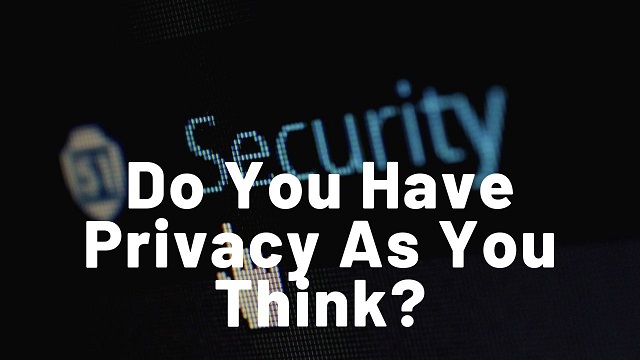In this age of unparalleled technological connectivity and information sharing, privacy is still a top concern in people’s minds, but just how much privacy do we actually enjoy these days?
Our personal data is everywhere and if you think about your day to day life and the technology you interact with, you may be surprised to see that you don’t enjoy as much privacy as you’d think.
From email correspondence to your browsing history, and your online purchasing habits, all of this data is processed and can be accessed and read by third parties, both via illegal and legal means.
The biggest offender in the quest to maintain privacy is, in fact, social media. Our online profiles contain a treasure trove of personal information about ourselves in terms of our likes and dislikes, locations we frequent, our social circles, and much more valuable information used to build a user profile of us as an individual.
Surprisingly though it seems the younger generation is trying to take back their online privacy and are weaning themselves off social media.
According to The Pew Research Center, young people are avoiding Facebook in mass quantities with only 51% of US teens admitting to using Facebook which is shockingly low for what was once considered an essential item for modern day life.
Research from the Journal Of Media Studies sheds light on the reasons for why this could be and explains that young people don’t agree with the way that Facebook ties them into a fixed self insisting on real names and links all the area’s of a person’s life into one from school to work and in turn restricts the freedom of the user to explore new identities. In a nutshell, it comes down to privacy concerns.
It’s not just your online life either that suffers from a lack of privacy, just walking outside or sitting in traffic you unwittingly open yourself up to privacy violations, in fact, the number of people being recorded on a daily basis unknowingly is staggering, from live cameras to security cameras, you’re sure to show up on someone’s screen each day just going about your daily business.
But What Can We Do to Protect our Privacy?

Well, the main thing is to employ common sense and to control what you put out online. If there’s a sensitive picture you would hate to fall into the wrong hands, simply don’t send it. If you don’t want your personal information sold to third-party sites, ensure you read user agreements thoroughly and then make a decision whether to use a particular platform.
People have a right to be concerned how their information is used and shared yet it’s worth noting that privacy is a very personal thing and can mean different things to different people depending on who you ask.
What’s clear though is that there has to be transparency between companies and users and companies must give users the decision on how their information is used and stored.

